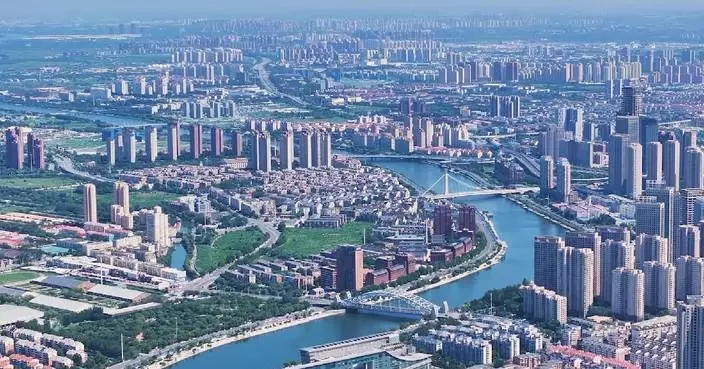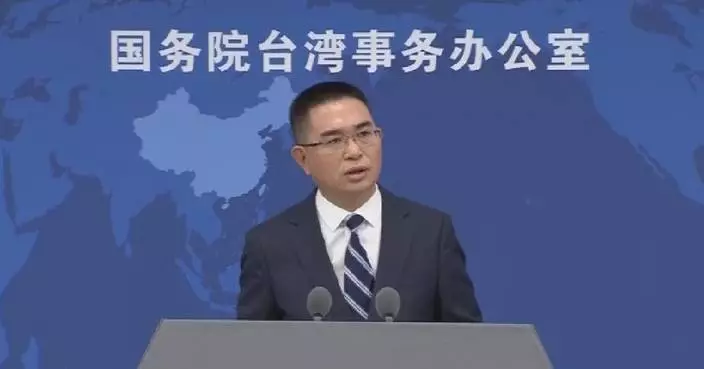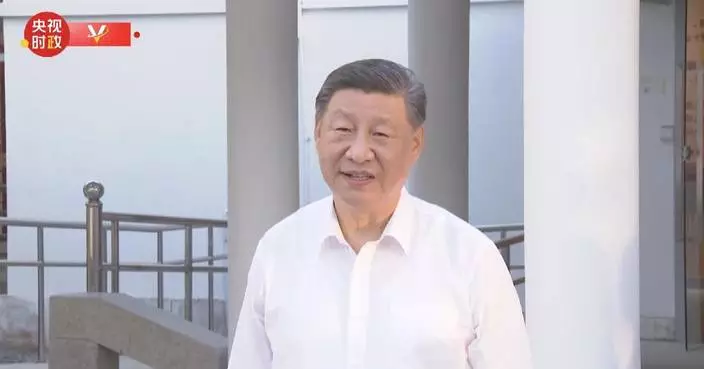Local residents and business community in Slovenia say they welcome China's visa-free policy arrangement with their country, which came into effect on Tuesday.
According to the Ministry of Foreign Affairs of China, from October 15, 2024 to December 31, 2025, ordinary passport holders from Portugal, Greece, Cyprus and Slovenia do not need a visa to enter China for business, tourism, family visit and transit purposes for up to 15 days.
For some in Slovenia, easing restrictions on travel to China is a very welcome policy change and one that is expected to be a significant step forward in fostering connections between the two countries.
"For almost 30 years, we have been talking about how we could reduce the burden of administration and bureaucracy in securing visas, and this is certainly a long way forward! People were discouraged by the idea that they had to make arrangements two or three weeks in advance, " said Igor Podgorsek, a local tour guide.
Slovenia is a beautiful country that every year attracts hundreds of thousands of tourists from around the world. Slovenians themselves love to travel, and a visa-free agreement makes travel to China more attractive than ever.
Sanela Ksela is a local entrepreneur who has traveled over a dozen times to China, documenting her adventures on video.
Ksela welcomes the new visa policy, as she looks forward to her next trip in just a few months.
"First time when I went to China in 2013, I just fell in love with it and also with the Chinese language, and it was just something that I recognized it is going to be my path in my life. I think that if we would have a direct flight from Ljubljana to China, it would benefit and make also my life easier and traveling easier to China," said Ksela.
It is not only tourists looking forward to easier travel. The business community in Slovenia is also optimistic about the new arrangement.
Slovenia's economy is export-oriented, and it is hoped easier business travel could be a shot-in-the-arm for trade.
"Visa-free travel could improve the competitiveness by allowing Slovenian companies faster response to the market demand and, of course, quicker site visit and better engagement with the potential Chinese partner," said Marjana Majeric, executive manager of the Chamber of Commerce and Industry of Slovenia.
The new visa-free policy is expected to unlock new business opportunities for both countries.
Prior to these four countries, China had extended its unilateral visa-free policy to travelers holding ordinary passport from 15 other countries, including France, Germany, Italy and Switzerland, starting from December 2023.
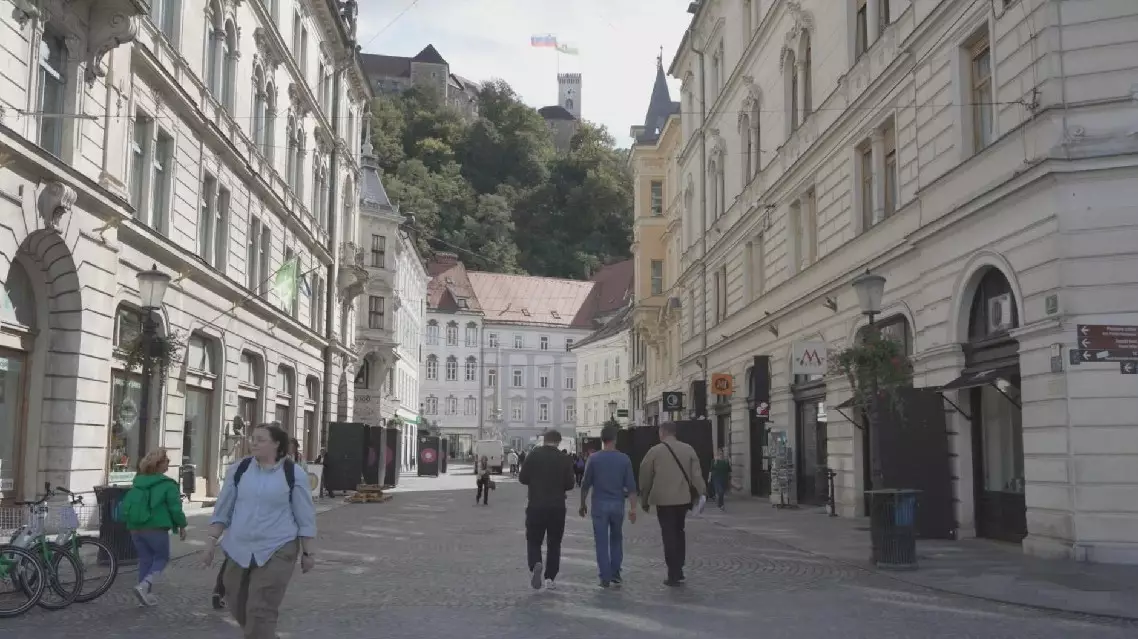
Slovenian residents, business community welcome China's visa-free policy
Xi Jinping, general secretary of the Communist Party of China Central Committee, went on an inspection tour to east China's coastal Fujian Province this week, where he had worked for 17 and a half years in his political career before he moved to neighboring Zhejiang Province in 2002.
"I dedicated the prime of my life to Fujian, fostering a profound bond with every blade of grass and tree," Xi once remarked. Commencing his service in Fujian at 32 in June 1985, Xi concluded his tenure over 17 years later at 49 in October 2002.
Xi on Tuesday inspected Dongshan County in Zhangzhou City of Fujian, where he visited Aojiao Village, the Gu Wenchang memorial hall and the Guandi cultural industrial park.
Aojiao Village is located in Chencheng Township in the southeastern part of Dongshan County, covering an area of 6.83 square kilometers and with the sea on three sides. Leveraging its prominent coastal environment advantages, Aojiao Village capitalizes on coordinated development of five leading industries -- marine fishing, aquaculture, seafood processing, e-commerce and rural tourism.
The Gu Wenchang memorial hall was built to honor a model county Party secretary named Gu Wenchang who dedicated his life to alleviating poverty in Dongshan County, which was once a barren, unproductive island in Fujian. Opened to the public in February 2004, the memorial hall houses a wealth of historical photographs of Gu and various artifacts he used. These exhibits vividly illustrate his leadership in transforming the ecological environment and eradicating the backwardness of the county.
During the visits, Xi learned about local efforts to advance rural revitalization across the board, carry forward the revolutionary traditions and strengthen the protection of cultural heritage.
Situated on the southeastern coast of China, Fujian Province covers a land area of 124,000 square kilometers plus a sea area of 136,000 square kilometers, with a population of 41.83 million by the end of 2023.
In the first half of 2024, the province's GDP stood at 2,638 billion yuan (about 370 billion U.S. dollars), a year-on-year increase of 5.6 percent, and its per capita GDP ranked fourth in the country.
Designated as China's first national ecological civilization pilot zone in June 2016, Fujian boasts a forest coverage rate of over 65 percent, ranking top in the country for 45 consecutive years.
Fujian is rich in cultural heritage. Long years of integration of the indigenous Minyue (Fujian-Guangdong) Culture and the Central Plain Culture and interaction with foreign civilizations have given birth to many vibrant and distinctive cultures, such as tea culture, Zhu Xi's Neo-Confucianism, lifestyles peculiar to the people of Hakka, Mindu (Fuzhou) and Minnan (South Fujian), various religions, and Mazu belief and customs. It is also home to five world heritage sites and nine intangible cultural heritage items listed by UNESCO.
Fujian abounds with local specialties. Those most well-known products include bodiless lacquerware and Shoushan stone carving in Fuzhou, lacquer thread sculpture in Xiamen, Oolong-Dahongpao Tea in Mount Wuyi, Oolong-Tieguanyin Tea in Anxi, shadow engraving in Hui'an, porcelain in Dehua, narcissus and Pianzaihuang (a patented traditional Chinese medicine) in Zhangzhou, edible mushrooms in Gutian, and litchi and longan in Putian.
Fujian cuisine is listed in the eight major distinctive schools of Chinese culinary art. Its two most famous dishes are Fotiaoqiang (a thick soup with over 30 ingredients) and Sea Clam in Chicken Soup.
Situated opposite the island of Taiwan, Fujian is where most native Taiwan compatriots have ancestral roots. It is being built into a demonstration zone for integrated development across the Taiwan Strait.
The province is now at the frontier of China's drive for reform and opening-up and pushing for higher-quality development.
Fujian is a major province for private businesses in China. In Fujian, the private sector of the economy accounts for 90 percent of all business entities in the province, contributing approximately 70 percent of its economic output, over 70 percent of tax revenue, some 70 percent of technological innovation achievements, and over 80 percent of local employment.
Jinjiang has been a good example of how the province is supporting private economic development. The city is renowned for its vibrant private sector, which has spawned the term "Jinjiang experience", referring to the city's successful economic model driven by private enterprises.
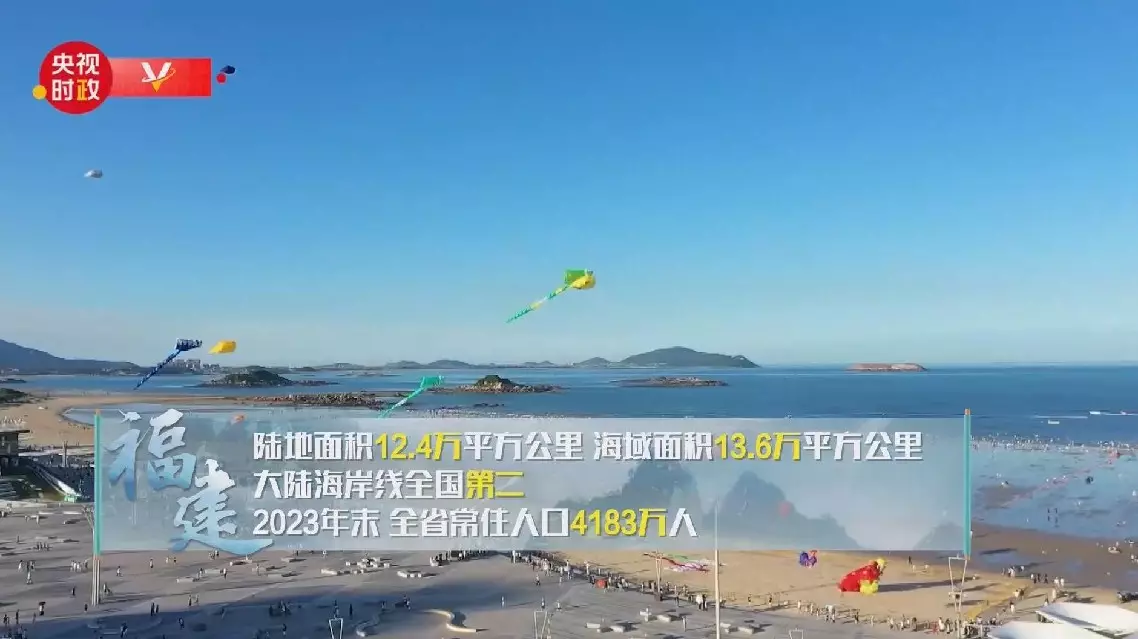
Brief look at Fujian Province as Xi goes on inspection tour




